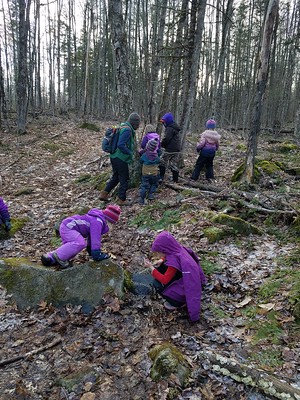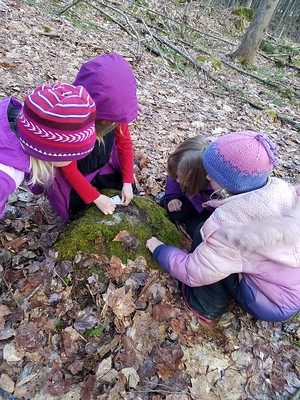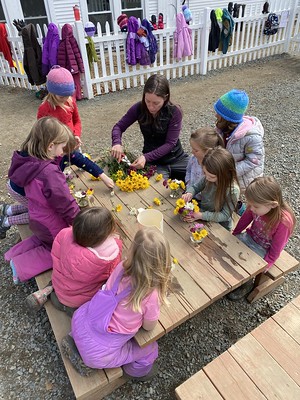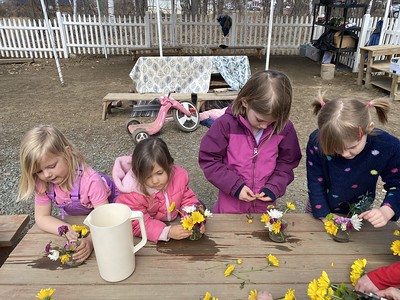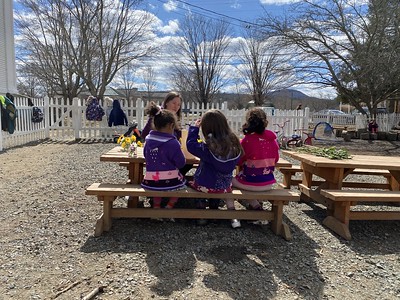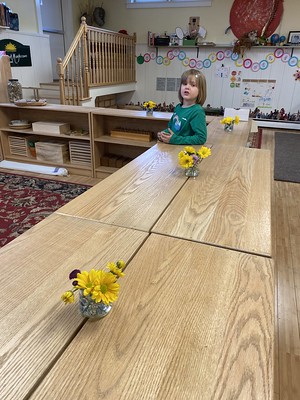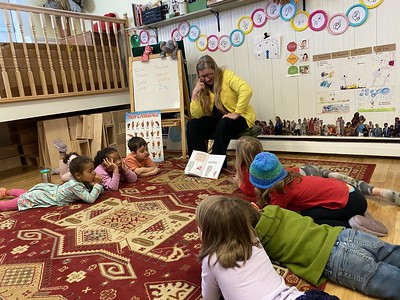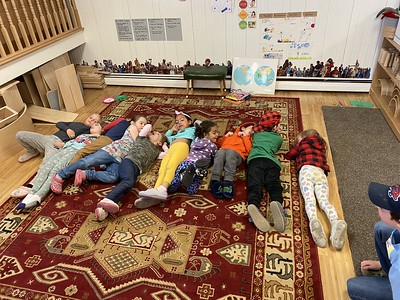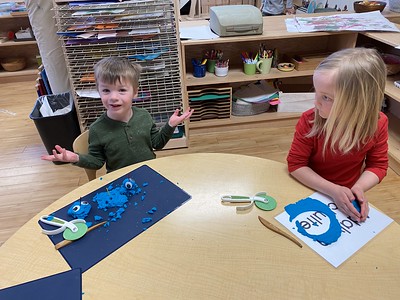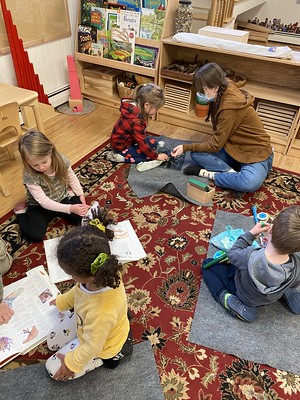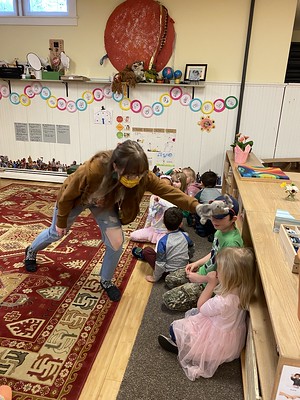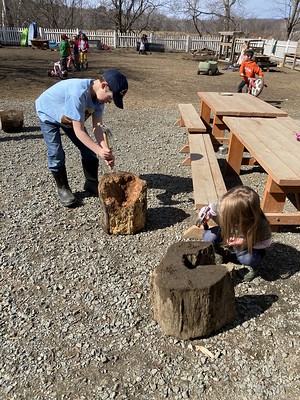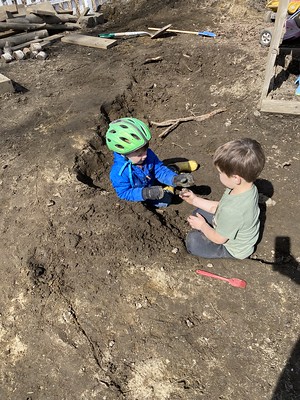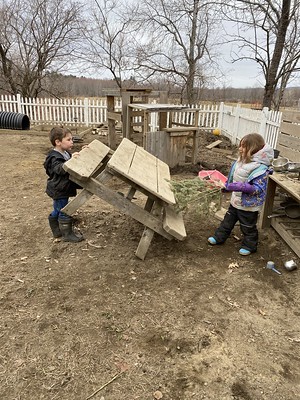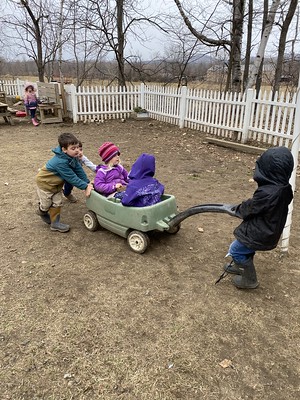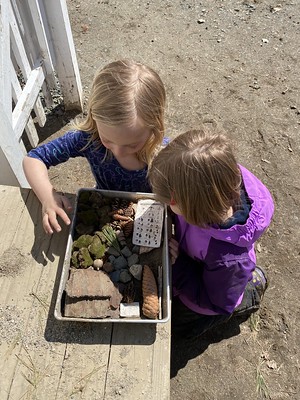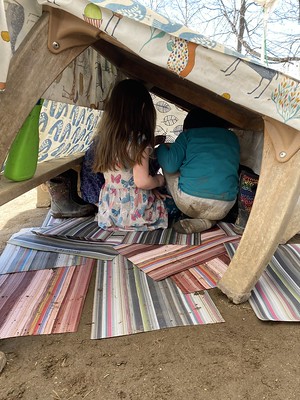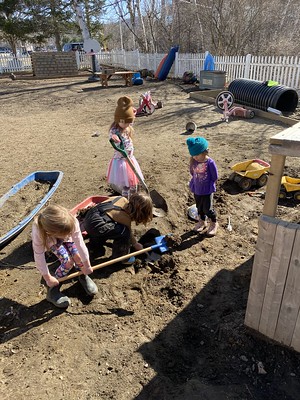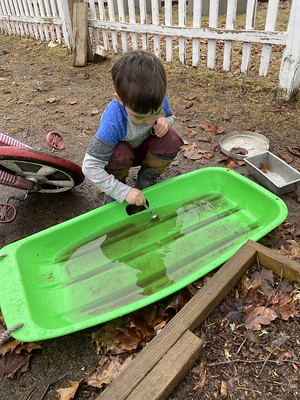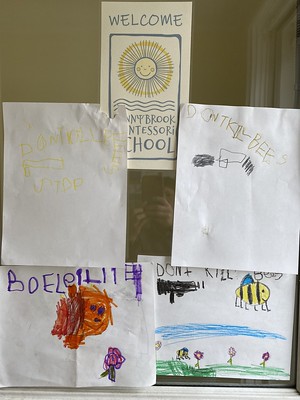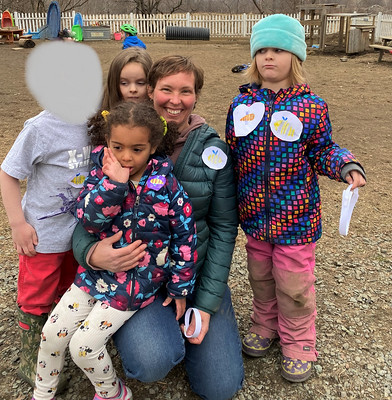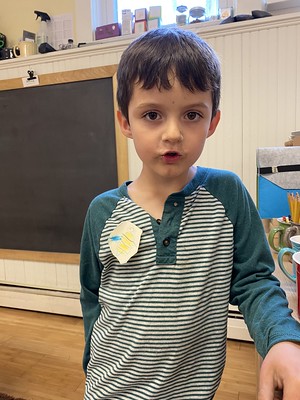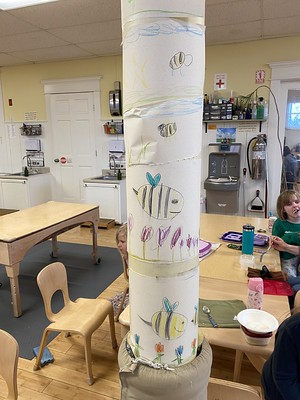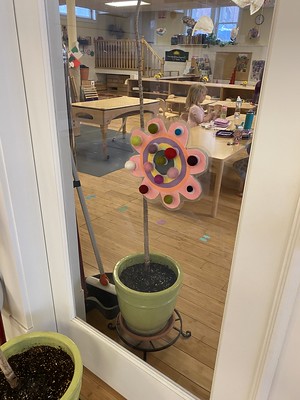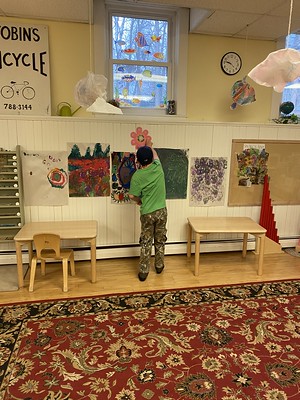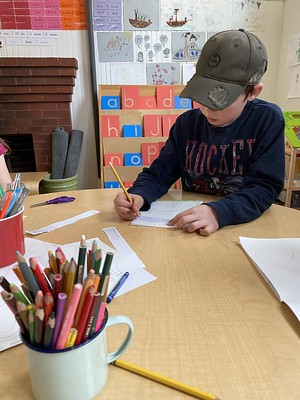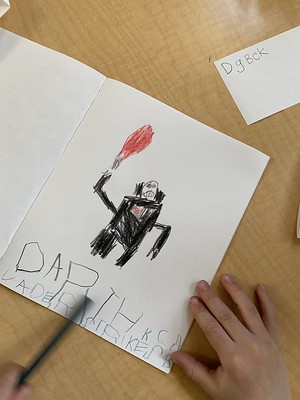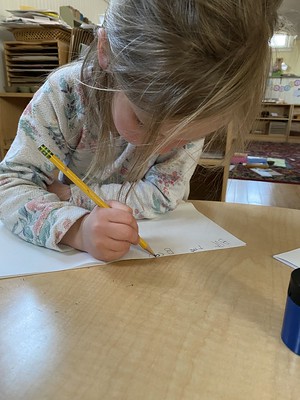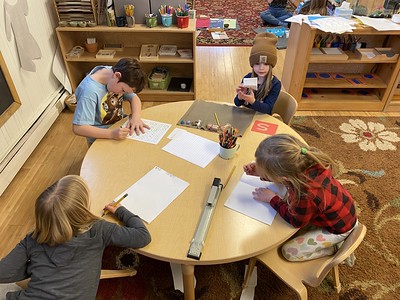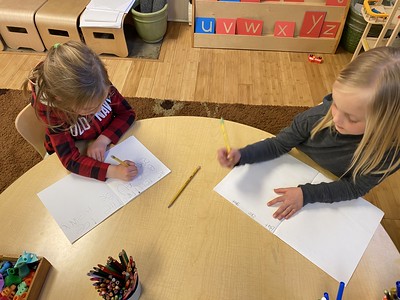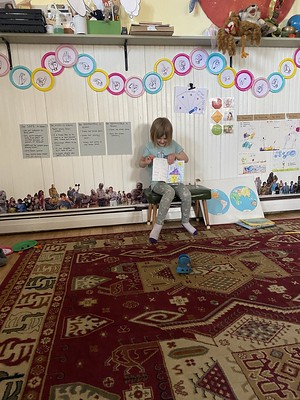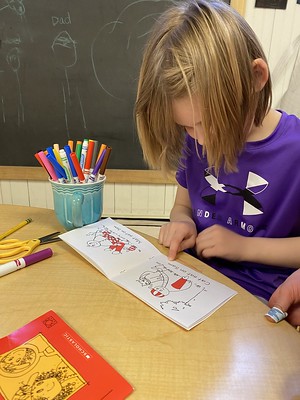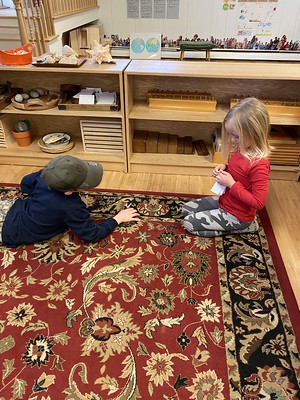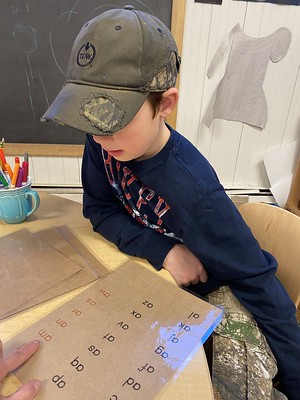The forest adventures of the Taproot students on Mondays have quickly become a favorite activity. On Monday’s walk in the woods we went looking for signs of spring. We noticed there were lots of birds singing, buds appearing on tree branches, and lots of puddles from the melting snow and ice. The children inspected under rocks and decomposing logs for insects. Just before our turn around point we discovered what may be a vernal pool. There were no signs of any frog or salamander eggs, but we are eager to check again on our next visit.
We walked to Lancaster Play and Learn to meet up with their students and teachers to take a walk around town with our egg shakers dressed in our purple gear to celebrate the Week of the Young Child. We walked back past Sunnybrook, down to the end of Main Street, and back to school, making our music and chatting along the way.
Michelle brought flowers with her to school on Tuesday in honor of the Week of the Young Child and carefully cut them down. The children created beautiful bouquets to place around the classroom and brighten things up.
Rose continued with spelling out and helping us identify the names of students, using more distinctive letters at the end or middle to help us determine who she was spelling. She read Happy Pig Day! by Mo Willems, which we all loved listening to and putting our fingers on our noises to sign “Oinky, oink, oink!” To wrap up we sang and signed Tingalayo, and learned a new verse at the end.
We looked at and discussed the book My Friend Rabbit by Eric Rohman and talked about how sometimes we may get frustrated by social situations and feel strongly about particular experiences, but it is so important to be mindful of how we use our words. We revisited an interaction that happened earlier that morning and how the words, tone of voice, and body language impacted the outcome and how we could have changed that by altering the way we interacted. The children demonstrated yelling “Stop, go away!” while leaning in with an angry face and intimidating body language, which escalated the behavior of the other student. They then demonstrated calmly saying “Please stop yelling. We do not like that.” Some students also demonstrated yelling “Leave me alone” and calmly saying “I need some space please.” Both statements are the same message, stemming from the same need, but delivered in different ways. When we use “I messages,” stating what you need, rather than “you messages,” putting your needs on someone else, it feels better all around.
Amphibians were introduced with some books we read and tales from the students about their interactions with amphibians. We learned that frogs, toads, salamanders, and newts are amphibians. They prefer cooler, moist places, and have moist skin. They eat worms, insects, and other small animals. Metamorphosis was introduced and we used frog magnets to walk through the life cycle of a frog from egg, to tadpole, to froglet, to frog.
We had a visit from a bee on Wednesday, which was a bit distressing to some students. We chatted about why bees are so important and how we want to protect bees and keep them safe, as they are responsible for pollinating the plants that produce most of our food. We discussed strategies to avoid getting stung by standing perfectly still if a bee is near us or lands on us, so as not to startle them. We talked about how bees really don’t want to sting and only do so if they feel threatened. Several students became very passionate about protecting bees and created Don’t Kill Bees signs to post around the yard. They started the Bee Patrol and educated others about how to protect bees and why they are important.
To build on the interest in bees, Friday students read a book about bees and watched two videos about why bees are so important. The children then took on bee roles. We had a queen bee to lay eggs, a baby larva bee who was fed by nurse bees, guard bees who protected the hive from intruders, pollen packing bees to pack all the pollen into cells, bees to fan the nectar, and harvester bees who collected nectar and pollen and spread pollen to other flowers. They were very busy maintaining their hive, caring for their young, and producing honey.
Kindergarten students were very excited to do some writing this week. They read some books about being authors and produced their very own books, about butterflies, Star Wars, a cat who got lost in New York City, John Deer Tractors, and a girl and her adventures at home. They also did some reading and some numeracy and other literacy work.
